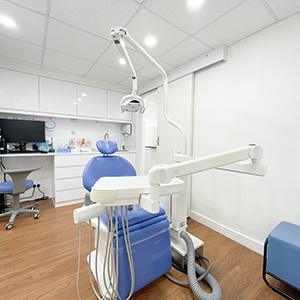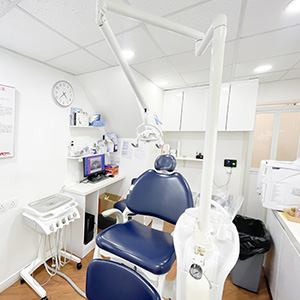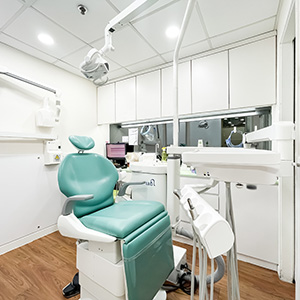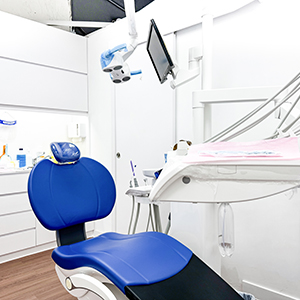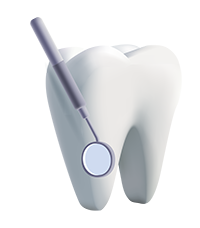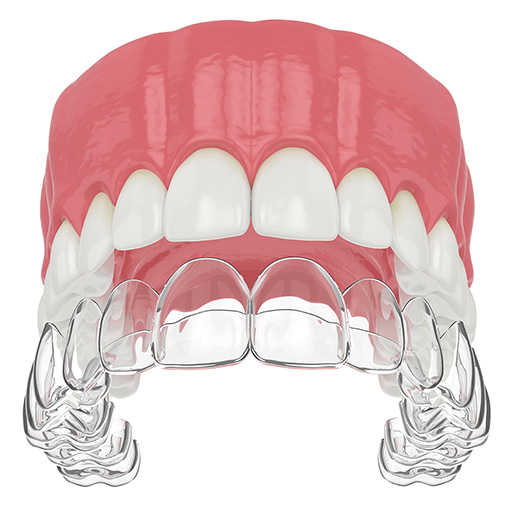
Invisible Braces
Invisible braces orthodontic treatment utilizes a series of transparent, removable, and custom-made aligners that are worn closely over the teeth to gradually align them to the desired positions. Additionally, before starting the invisible braces treatment, dentists can use 3D computer technology to simulate the entire process of tooth movement, combining it with professional diagnosis to anticipate the outcomes of orthodontic treatment, making the treatment more predictable.
Invisible Braces Treatment Process
Step 1 – Initial Consultation
During the initial consultation, the dentist will carefully examine your teeth and oral condition, and understand your preferences to determine if you are suitable for the invisible braces treatment. Once confirmed by the dentist, dental impressions, X-rays of the teeth, and photos will be taken and sent to the United States along with a customized treatment plan.
Step 2 – 3D Simulation Analysis
Using computer technology to transform your dental impressions into a three-dimensional image, along with the dentist’s diagnosis and the treatment plan, the entire treatment process will be simulated. Before the treatment, you will be able to understand and visualize every detail of the tooth movement during the treatment through this 3D simulation analysis, ensuring a smooth treatment process.
Step 3 – Custom-Made Invisible Braces
After the 3D simulation analysis is reviewed and confirmed by the dentist, the production process of the braces begins. Once all the braces are packaged, they will be shipped to your primary treating dentist. The number of braces needed varies for each patient depending on their individual circumstances.
Step 4 – Commencement of Orthodontic Treatment
During each follow-up appointment, the dentist will provide 2-3 sets of braces in sequence, allowing you to change to a new set at home every two weeks. By wearing the braces for 22 hours daily and attending follow-up appointments every 4-6 weeks, your teeth will gradually be moved to the desired positions until the completion of the entire treatment.
Q&A
- Are There Any Dietary Restrictions When Undergoing Treatment With Invisible Braces?
- How Long Should Invisible Braces Be Worn Each Day?
- Will Wearing Invisible Braces Affect Speech?
- Does Smoking Cause Invisible Braces To Discolor?
- Can I Chew Gum While Wearing Invisible Braces?
- How Can Invisible Braces Be Effectively Cleaned?
- Will There Be Any Pain During The Treatment?
- How Long Does The Invisible Braces Orthodontic Treatment Take?
- How Often Are Follow-Up Appointments Needed?
- How Much Does The Invisible Braces Orthodontic Treatment Cost?
- What Are The Differences Between Invisible Braces And Traditional Metal Braces? Are Metal Braces More Effective Than Invisible Braces?
- What Are The Precautions To Take During Treatment With Invisible Braces?
No, there are no dietary restrictions when wearing invisible braces. You can enjoy your favorite foods as long as you remove the braces while eating. It is important to clean your teeth after each meal before putting the invisible braces back on to ensure oral hygiene.
Apart from eating, brushing, and flossing, you should wear invisible braces for the rest of the day (at least 22 hours or more each day) to achieve the best treatment results.
Like with traditional orthodontic treatments, some patients may experience difficulty speaking naturally at the beginning of treatment with invisible braces. However, speech will return to normal once you get used to wearing them.
Smoking can potentially cause discoloration of invisible braces, so it is advisable to avoid smoking as much as possible during the period of wearing them.
No, you cannot chew gum while wearing invisible braces as it may stick to them. Patients should always remove the braces and store them in the provided case before eating any food.
You can clean the braces with warm water and a toothbrush, but it is important to clean your teeth thoroughly after each meal before putting the braces back on.
Since invisible braces do not cause the oral abrasions and discomfort associated with traditional metal braces, some patients may experience mild discomfort each time they switch to a new set of invisible braces due to the slight pressure on the teeth as they are being moved. This sensation of pressure typically diminishes gradually starting from the third day of wearing the new set of invisible braces, indicating that the braces are actively aligning the teeth.
The duration of the treatment depends on each individual patient’s case. Detailed information can be obtained during the initial consultation with a dental professional.
Dental professionals will schedule follow-up appointments based on your oral condition, typically every 4-6 weeks, to monitor the progress of the treatment and provide the next sets of aligners.
After the initial examination and diagnosis, the cost of the invisible braces treatment is determined by the complexity of the patient’s teeth and the duration of the treatment. There is no fixed fee for invisible braces treatment, so it is advisable to consult with a dental professional for more information.
There are several key differences between invisible braces and traditional metal braces:
- Appearance: Invisible braces are clear and less noticeable, while metal braces have visible metal components.
- Comfort: Invisible braces are typically more comfortable as they are custom-made plastic aligners without protruding metal parts. Metal braces may cause friction and discomfort in the mouth.
- Removability: Invisible braces are removable for easy oral hygiene and eating, while metal braces are fixed on the teeth.
- Treatment Time: The treatment time for each type of braces depends on the severity of the condition.
As for effectiveness, both invisible braces and traditional metal braces are effective orthodontic methods. The choice between the two depends on personal preferences, budget, and orthodontic needs. It is recommended to consult with a dentist to understand which type of braces is suitable for your situation.
Invisible braces should be worn for 20 to 22 hours per day, with a change every 1-2 weeks. You will visit the dentist every 6-8 weeks to monitor your progress. Through each check-up, the dentist ensures that the extent of tooth movement aligns with expectations, otherwise a new series of aligners may need to be computer-planned and manufactured.
In addition to wearing the aligners for extended periods each day, it is important to follow the dentist’s instructions for using chewies during each aligner change to ensure a perfect fit. Furthermore, patients need to maintain proper oral hygiene for teeth and aligners to prevent plaque buildup and gum inflammation.
In the first few months after completing treatment, patients will need to use a retainer to prevent teeth from shifting and maintain the treatment results. The retainer, similar in appearance to invisible braces, serves a different purpose by preserving teeth positions rather than applying pressure to move them.
Invisible braces can address common issues of misalignment or crooked teeth with minimal visibility and the convenience of self-removal for cleaning with a toothbrush and floss to maintain oral hygiene. However, patients must be cooperative and disciplined throughout the process.




